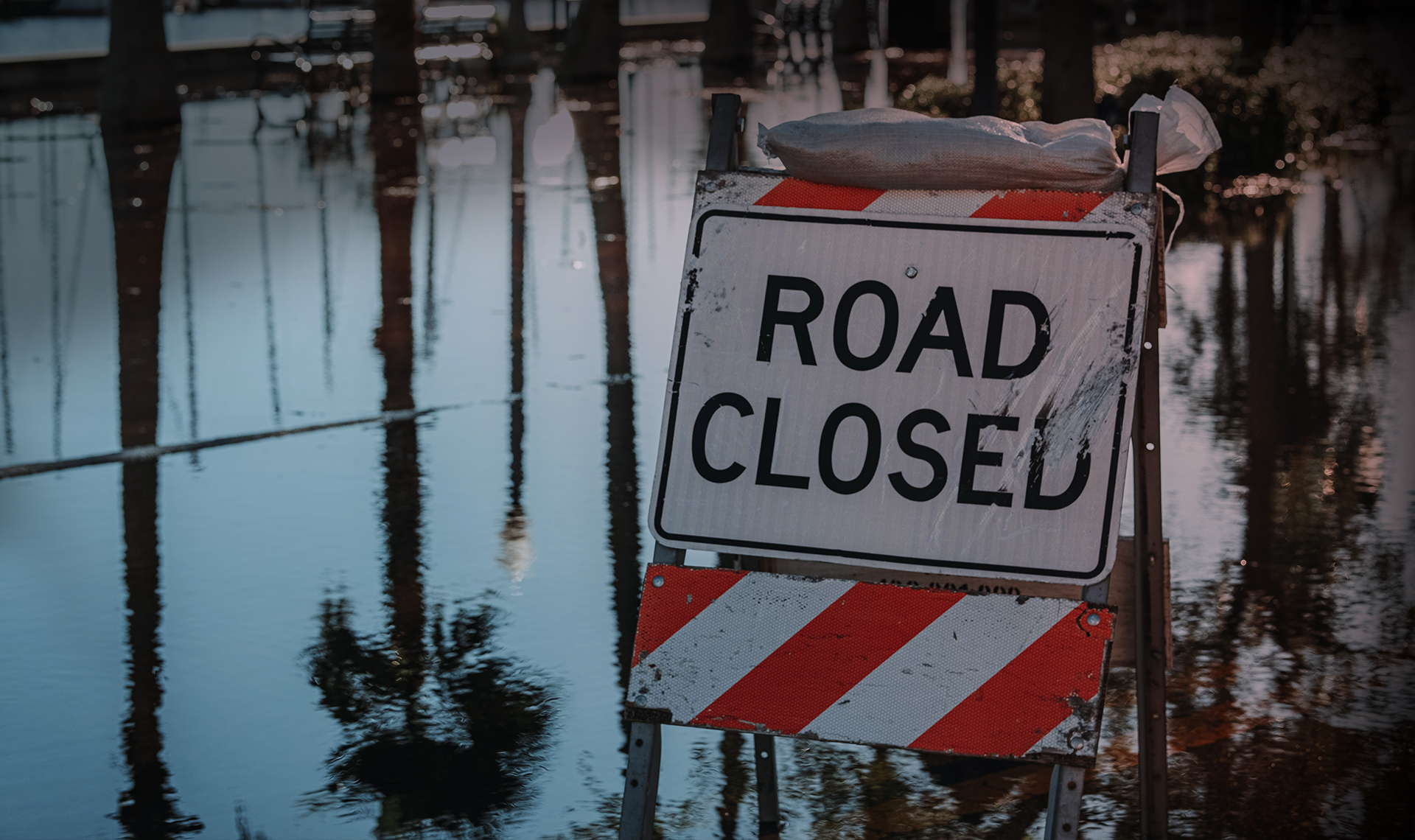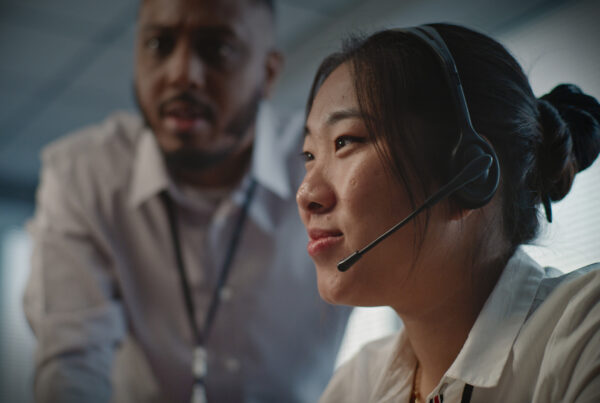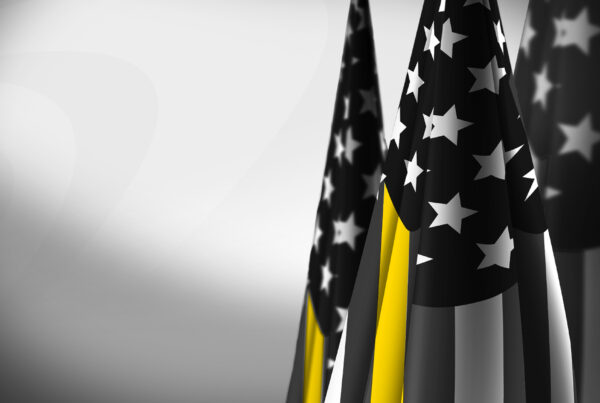In the wake of Hurricane Ian, I have been flooded with memories of previous natural disasters that I have worked as a 9-1-1 dispatcher. After spending 20 years in 9-1-1 centers, I have worked my share! Countless hurricanes, nor’easters, snowstorms, ice storms, a few tornados, and even one earthquake! They may be different natural disasters, but they all have some of the same effects on the 9-1-1 center. They are inundated with calls for wellness checks, downed trees, downed powerlines, flooded streets, and missing people. Don’t forget about the calls from people who yell at the dispatchers wanting to know when they will have power back or asking why the entrance to their neighborhood is blocked by floodwaters, or when someone is going to get the tree out of the road, or when the flood waters are going to recede. This is all in addition to the routine calls that come into the centers for auto accidents, medical emergencies, house fires, etc.
With all of this going on, it is difficult to fathom what the dispatchers are going through. They’re processing call after call, sending countless units to emergencies, logging flooded roads and downed trees for other departments to respond with signs, caution cones, and debris removal. They’re contacting the power company, public works, and various other utilities. They flow from task to task and handle each one thoroughly, and with compassion and the utmost professionalism and care. They do all of this while worrying about their own families and property they have left behind. For many dispatchers in this situation, they understand they may have to stay at their 9-1-1- center for several days.
The question is, what else can be done to prepare the center, and the staff, for these events? Aside from the obvious answer of ensuring your staff is properly trained, here are some simple things to do for your employees if you are faced with a natural disaster incident.
The Basics:
You always want to have a disaster plan in place before disaster strikes. That plan should be reviewed regularly. This should include plans for loss of power, generator failure, CAD failure, communications failures, and the need to evacuate in an emergency.
What plans do you have in place to ensure continuity of services? Do you have an agreement with a neighboring agency to transfer calls? Do the calls transfer to portable phones? Test those plans prior to an emergency. Gone are the days of pretending these things cannot happen to your center and not plan for it. Plan and practice.
Feed Your Staff!
Let’s be honest, dispatchers love food, so make sure they are fed! If possible, have meals, snacks, coffee, and water, available for them in advance. Be sure to include your telecommunicators when the community starts bringing in donations of food for responders. Remember, they are working extremely hard to keep both citizens and responders safe, and services flowing.
I can think of several hits and misses of my previous agencies. There were the storms we were really prepared for. We planned menus in advance, brought in food, and took turns cooking. On the flip side, one time we were given a loaf of bread, a jar of peanut butter, a jar of jelly, and a case of spam to feed twelve people for what turned out to be three days. We all chipped in for food, and people went to their homes and brought back supplies and shared them. The fire department staff that was in the center assisting with the prioritization of calls contacted the fire station, and hot food arrived for us too.
And there was the storm we were not supposed to get. Our sergeant was cooking hamburgers and hot dogs on an indoor grill and serving them to us at midnight as we processed call after call. Did I mention she walked to another city building in the middle of the hurricane to get the food? Other command staff members brought food and coffee for dispatch when they came in to work their shift with us as the EOC (Emergency Operations Center) liaison. Those are notable examples of leadership!
Prepare to Have Extra Staff on Deck
Staffing is not only important for the “boots on the ground.” It is also vital for your 9-1-1 center. Remember to not only allow for staffing the consoles that you have, but your backup center, as well as additional staff for relief. What do I mean by all of this? It seems obvious and common sense to have a dispatcher for each position you have available. But what about if one of those people must go to the bathroom, or step away and breathe for a few minutes? You should also staff a few extra people to run around and bring drinks, snacks, relief, and help as needed. It is crucial to have someone who can sit down and seamlessly relieve a telecommunicator without decreasing the call handling capacity of the center.
Get Your Backup Center Ready to Go
Preparing your backup center is essential. Test it regularly, including just before a weather event is coming. Make sure you schedule staffing for your backup center. That allows for a seamless transition. Even if it has fewer capabilities than your main center, it will still allow for continuity of service.
Plan for the Long Haul
Have a plan for where people will sleep, shower, etc. in the event of a situation where they need to stay for an extended period.
If you really want to shoot for the moon, you can always do what my former Chief did. He told the staff that if they are mandated to stay due to safety, or staffing, we could prepare in advance and bring our families and pets. We could shelter them all on site. Employees did not have to worry about the safety of their families while they worked. This was truly an example of family taking care of family.
Review and Modify for the Future
Pay attention to after action reports. Both for your agency, and others. What lessons have been learned? What can be improved upon? Are there protocols you wish you had in place? Are there emergencies no one thought to account for? Something unique to your locality? An after-action review is the perfect opportunity to modify protocols, pre-arrival instructions, and agency procedures to assist your staff in handling similar situations in the future.
Always be on the lookout for areas of improvement. Perhaps disaster did not strike your locality this time. But did something you saw elsewhere make you think?
Has all the news coverage of Hurricane Ian made you think about protocol changes you want to make for your agency? This is the perfect time to modify your plans. Reach out to us at PowerPhone and we can assist you with protocol changes!

About the Author
Erin Winslow comes to PowerPhone with 20 years of experience in 911 call centers. Prior to that, she spent over five years volunteering for her local fire and emergency medical assistance agencies. She has been an Implementation Manager since 2020.








